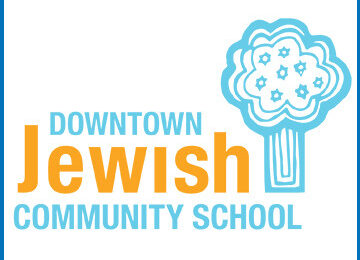After 44 years, Toronto’s Downtown Jewish Community School (DJCS), an afterschool Hebrew program, is closing its doors. Like many schools and businesses, the DJCS was deeply impacted by the pandemic.
“Our numbers after the pandemic haven’t rebounded from what they were before COVID,” said Avi Spector, DJCS board president.
The school, which was housed in the Miles Nadal Jewish Community Centre, entered the pandemic with 150 students and saw a significant drop coming out of it.
“We had a couple of years of low enrolment and we just weren’t able to sustain the school with that level of enrolment.”
The school was able to survive the last three years with the help of reserves, loans, donations, government funding and families’ commitment to Jewish education, said a letter from the board posted on the school’s website. But it wasn’t enough.
Spector said a number of circumstances contributed to the school’s closing, including a post-pandemic change in parents’ priorities.
“A lot of families were restricted in terms of what extracurriculars their children could have during COVID. Once things opened up, they broadened their options and what they prioritized and chose for their families.”
This was also the experience for City Shul, a Reform synagogue downtown which offers a weekly after-school “Jewish living” curriculum for kindergarten to Grade 7.
According to City Shul’s director of learning, Lori Shapero-Press, enrolment has dropped by one-third since the pandemic started.
She said City Shul School is small to begin with and it has been hard to get parents to sign their kids back up.
“It’s an excellent program and there’s lots of excellent programs around but perhaps people’s priorities have changed.”
According to Daniel Held, chief program officer of UJA Federation of Greater Toronto, this is a trend across the city in Jewish education.
Supplementary Jewish schools had 4,000 kids enrolled in September 2016. In the September before the pandemic, 3,200 kids were enrolled. During the pandemic, this number dropped by 60 percent to 1,400.
“While these numbers have rebounded in the last two years, they are not back to pre-pandemic levels.”
Held said there has been a growth in alternative education, such as learning circles in people’s homes, one-on-one tutoring, b’nai mitzvah programs and a slew of other Jewish experiences.
“Parents lead really hectic lives and are looking for things that fit into their flow of life, programs based around different schedules, focused on PD days at school, March break, things like that.”
Makom: Creative Downtown Judaism, which opened in 2009, is working to do this for the downtown Toronto community.
While DJCS was primarily a Sunday school with an option to meet once a week after-school, Makom is solely an after-school program.
Makom offers an after-school program for kids in kindergarten to Grade 5, twice a week in three different public elementary school locations. The Makom ATID program for students in Grades 6 to 8 meets twice a week in one location.
According to founder Rabbi Aaron Levy, 75 kids are enrolled across the two programs, which is close to their enrolment numbers before the pandemic.
“We expected that this year, being our first year back in person, that we would have smaller enrolment and it would take a couple of years to build back to pre-pandemic,” he said. “We have been very happy that families and kids were gung-ho to get back to Jewish and Hebrew education.”
Held said that educators are getting more creative to attract families downtown.
“The downtown community is notably diverse and that often takes greater number of programs with more diversity and experiences.”
Held points to the example of Shoresh, a nature-based Jewish education program.
Shoresh Outdoor School offers programs for kids in junior kindergarten to Grade 4 in four different locations. The program is strictly outdoors, rain or shine.
Shoresh also offers a year-long b’nei mitzvah program for students in grades 7 and 8 that meets outdoors twice a month and includes a weekend canoe trip.
There has also been a significant growth in Jewish day school enrolment during the pandemic.
“Parents see that day schools really performed well during the pandemic,” said Held.
Families are also taking advantage of new scholarships available to make day school education more affordable.
“Paul Penna, the downtown Jewish day school, is as large as it has ever been. It just re-opened its middle school and will have 75 kids, which is remarkable, and it’s growing by leaps and bounds.”
While it’s a new era for some, it’s the end of an era for DJCS.
“We provided a Jewish education to a lot of families that didn’t feel comfortable in a lot of Jewish institutions,” said Spector, who noted how the school really preaches plurality and diversity while welcoming all different types of families.
“There’s a lot of positivity that comes out of our school closing in an odd way. Our school was really a pioneer in opening up a Jewish education for a diverse, pluralistic community that wasn’t being reached. A lot of organizations have adapted to that and we are proud of being a trailblazer.”
DJCS is holding a town hall with its parents in the middle of April to help with the transition.







